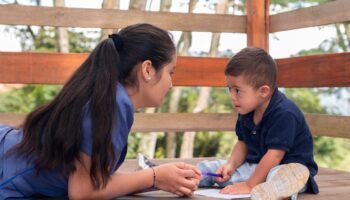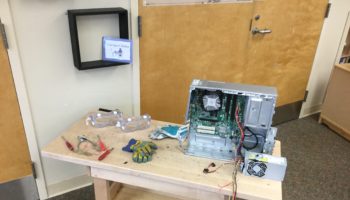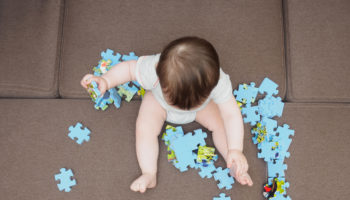Kitty Syster
Puzzles are not for everyone, but they are, and should be, a staple in early childhood classrooms. Children can learn and grow in so many ways from puzzles. Most people know puzzles help children develop fine motor skills. Puzzles come in many different styles. Toddlers use puzzles that have large knobs and are single pieces per slot, as they grow and develop, they will be able to use single piece puzzles with small knobs or no knobs at all. After children have mastered single piece puzzles, they can advance to 2-to-4-piece puzzles. Children develop their fine motor skills while working on these simple puzzles but as they grow and develop, they begin to get more out of puzzles than just fine motor skills like basic math skills. Puzzles can be made up of any shape but using simple shape block puzzles help children learn about numbers and shapes as you relate the shapes to other things in the classroom or by counting the sides of a triangle or square. Children will also begin to learn how putting shapes together can create a new shape and figuring out how the pieces fit together develops spatial awareness/reasoning skills. Puzzles are also helpful in building children’s problem-solving skills. As children master a certain level of puzzle, children can continue to improve their puzzle and problem-solving skills by moving to more advanced and more difficult puzzles that challenge their emerging skills. Teachers can encourage children to build problem-solving skills by resisting the urge to fix the problem or show children the correct way to fit the pieces together; providing gentle guidance when frustration starts to set in by holding the puzzle board steady while a child adds a puzzle piece or asking questions to promote the child to think through the process and providing positive encouragement to the child to keep them interested and motivated to complete the task. There’s so much children can learn through puzzles so don’t forget about these old standbys on the shelf and encourage their use!
References
Reed, Kristen E. “Play Games, Learn Math! Pattern Block Puzzles.” Teaching Young Children April/May 2018.
Younh, Jessica Mercer. “Mastery motivation: Persistence and Problem Solving in Preschool.” Teaching Young Children October/November 2017.




